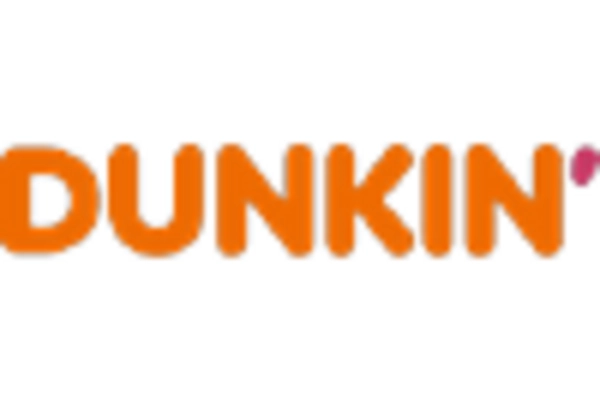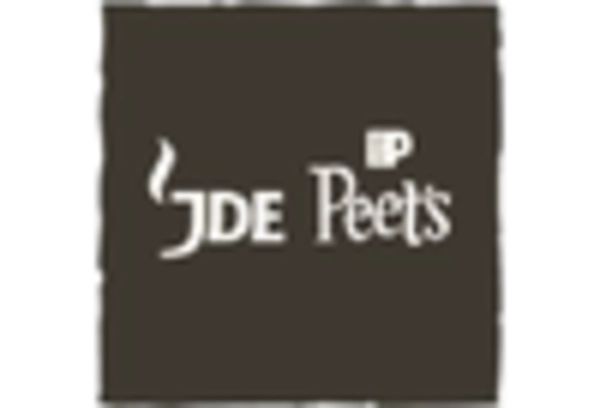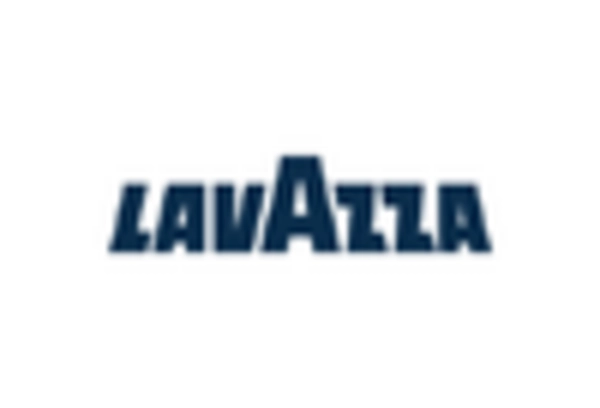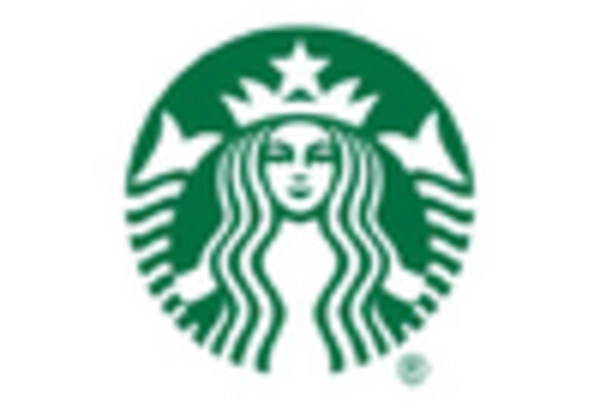Growing Demand for Premium Coffee
The coffee market in the US is experiencing a notable shift towards premium and high-quality coffee products. Consumers are increasingly willing to pay a premium for specialty blends, single-origin coffees, and artisanal roasts. This trend is reflected in the market data, which indicates that the sales of premium coffee have surged by approximately 20% over the past year. The growing appreciation for unique flavor profiles and brewing methods is driving this demand. As consumers become more discerning, the coffee market is likely to see a continued emphasis on quality over quantity, with brands focusing on sourcing the finest beans and enhancing the overall coffee experience.
E-commerce Growth and Online Sales
The coffee market is witnessing a substantial shift towards e-commerce, driven by changing consumer shopping habits. Online sales of coffee products have surged, with data indicating a growth rate of 30% in the past year. This trend is largely attributed to the convenience of online shopping and the ability to access a wider variety of products. As consumers increasingly prefer to purchase coffee online, brands are investing in their digital presence and enhancing their e-commerce platforms. This shift is likely to reshape the distribution landscape of the coffee market, making it essential for companies to adapt to the evolving retail environment.
Technological Advancements in Brewing
Technological innovations are playing a pivotal role in shaping the coffee market in the US. The introduction of advanced brewing equipment, such as smart coffee makers and precision grinders, is enhancing the home brewing experience. These technologies allow consumers to replicate café-quality coffee at home, which has become increasingly popular. Market data suggests that sales of home brewing equipment have increased by 15% in the last year, indicating a strong consumer interest in high-tech solutions. As these advancements continue to evolve, they are likely to further influence consumer preferences and drive growth within the coffee market.
Health Consciousness and Functional Beverages
The rising health consciousness among consumers is significantly impacting the coffee market. Many individuals are seeking beverages that offer health benefits, leading to an increase in demand for functional coffee products. These include options infused with vitamins, adaptogens, and other health-promoting ingredients. Market Research Future indicates that the sales of functional coffee have grown by approximately 25% in the past year, reflecting a shift towards beverages that align with wellness trends. As consumers prioritize health and wellness, the coffee market is likely to adapt by introducing more innovative and health-oriented products.
Cultural Influence and Coffee Consumption Trends
Cultural factors are significantly influencing the coffee market in the US. The growing popularity of coffee culture, characterized by social gatherings in coffee shops and the rise of coffee-centric events, is driving consumption. Data suggests that coffee consumption has increased by 10% over the past year, as more individuals incorporate coffee into their daily routines. This cultural shift is fostering a sense of community around coffee, encouraging consumers to explore different brewing methods and flavors. As these trends continue to evolve, the coffee market is likely to see a sustained increase in demand for diverse coffee experiences.
















